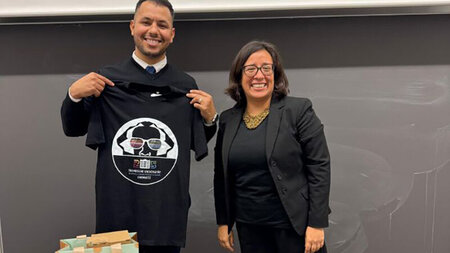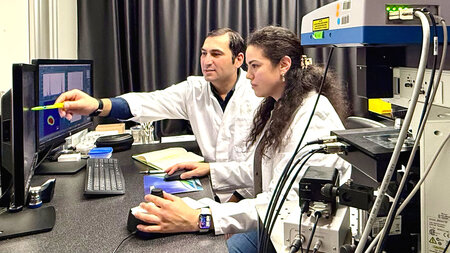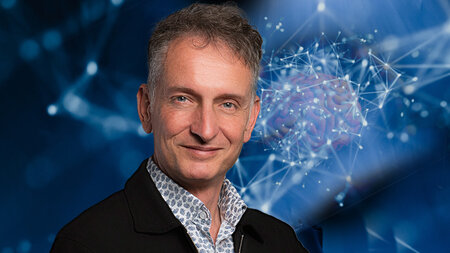Begegnungszone: Statistical Physics and Machine Learning
International Workshop in Collaboration with the Max Planck Institute for Dynamics and Self-Organization Explores Synergies between Statistical Physics and Artificial Intelligence
-
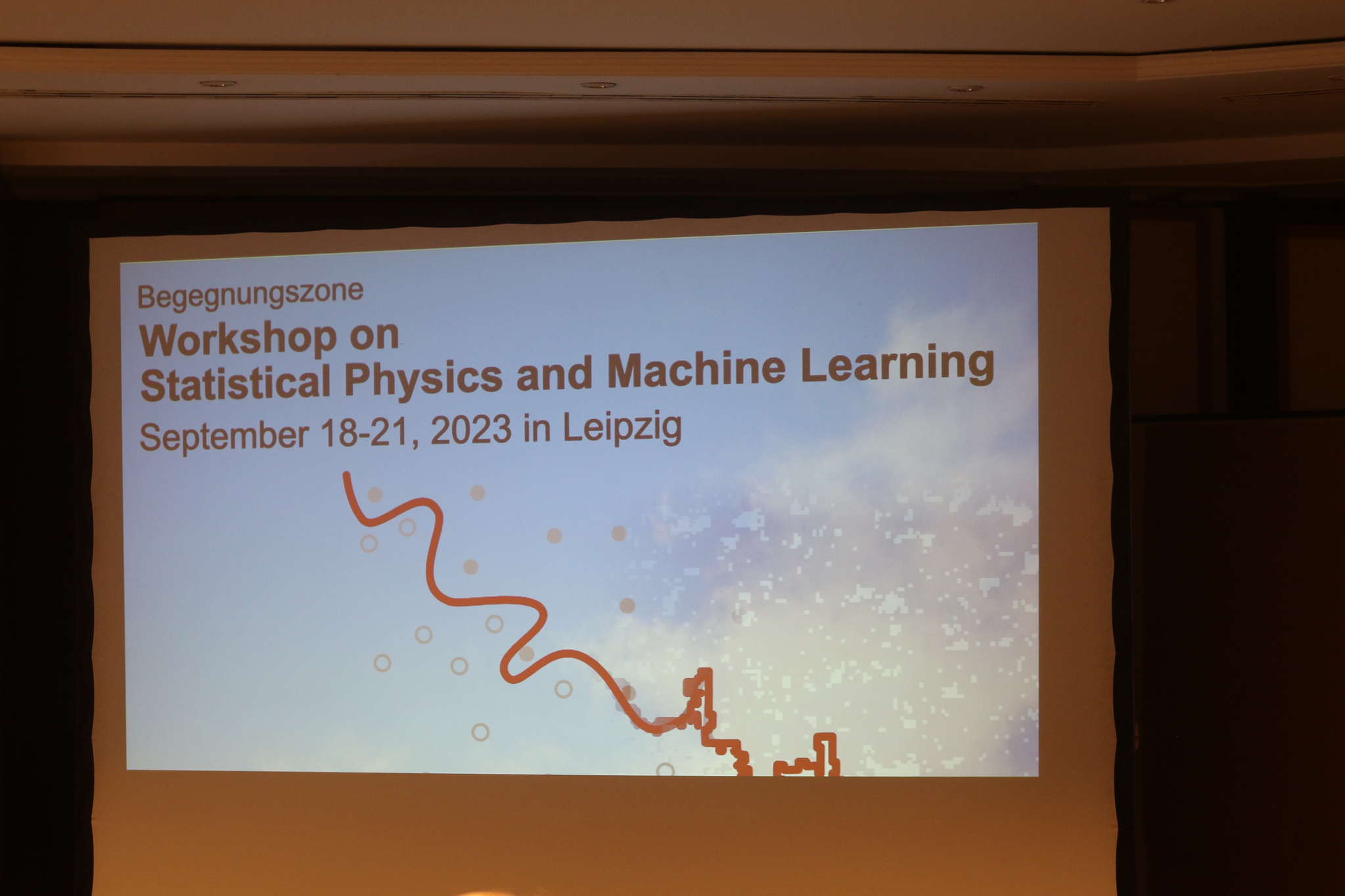
Physics meets machine learning -
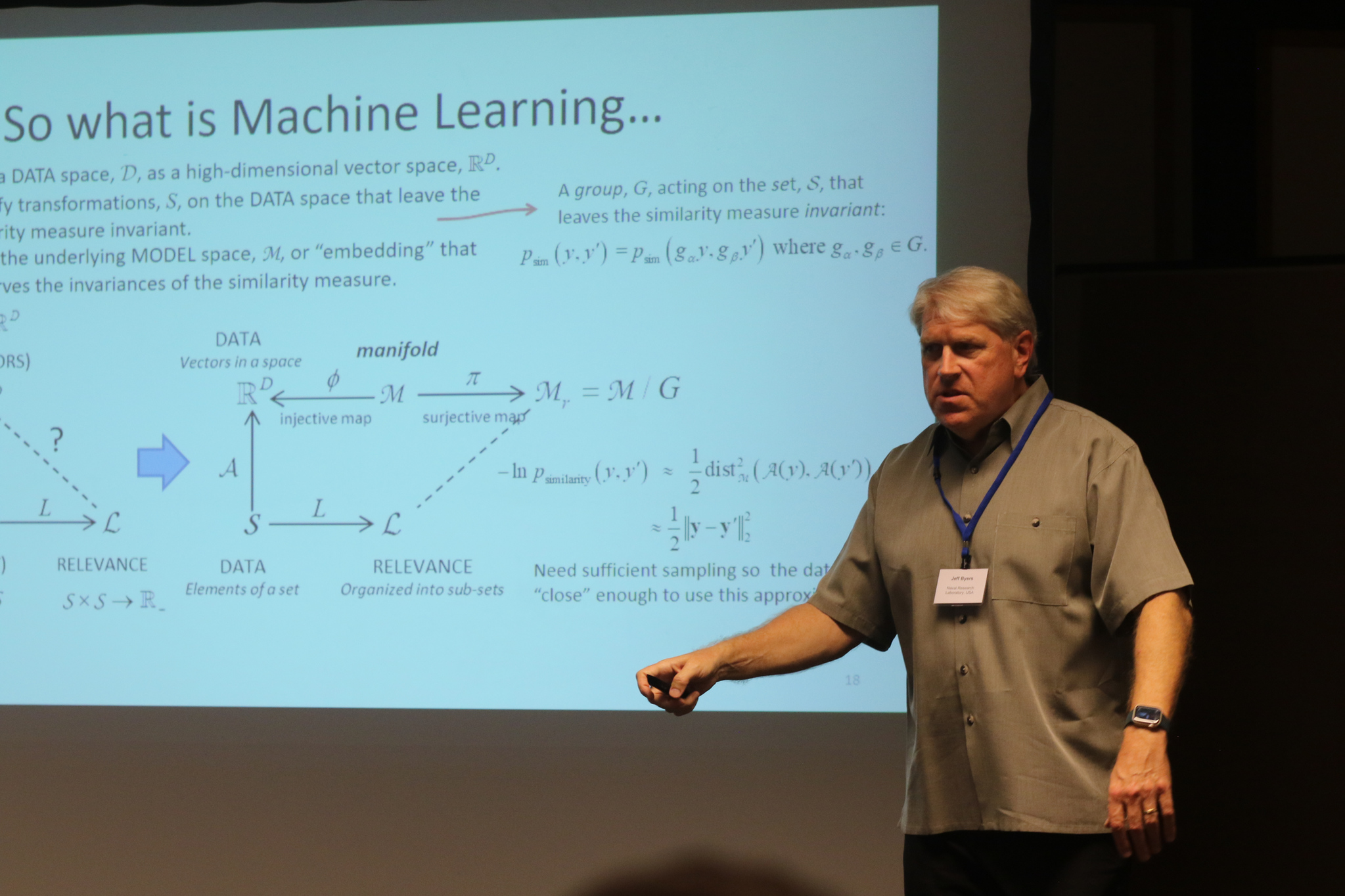
Workshop impressions (1) -
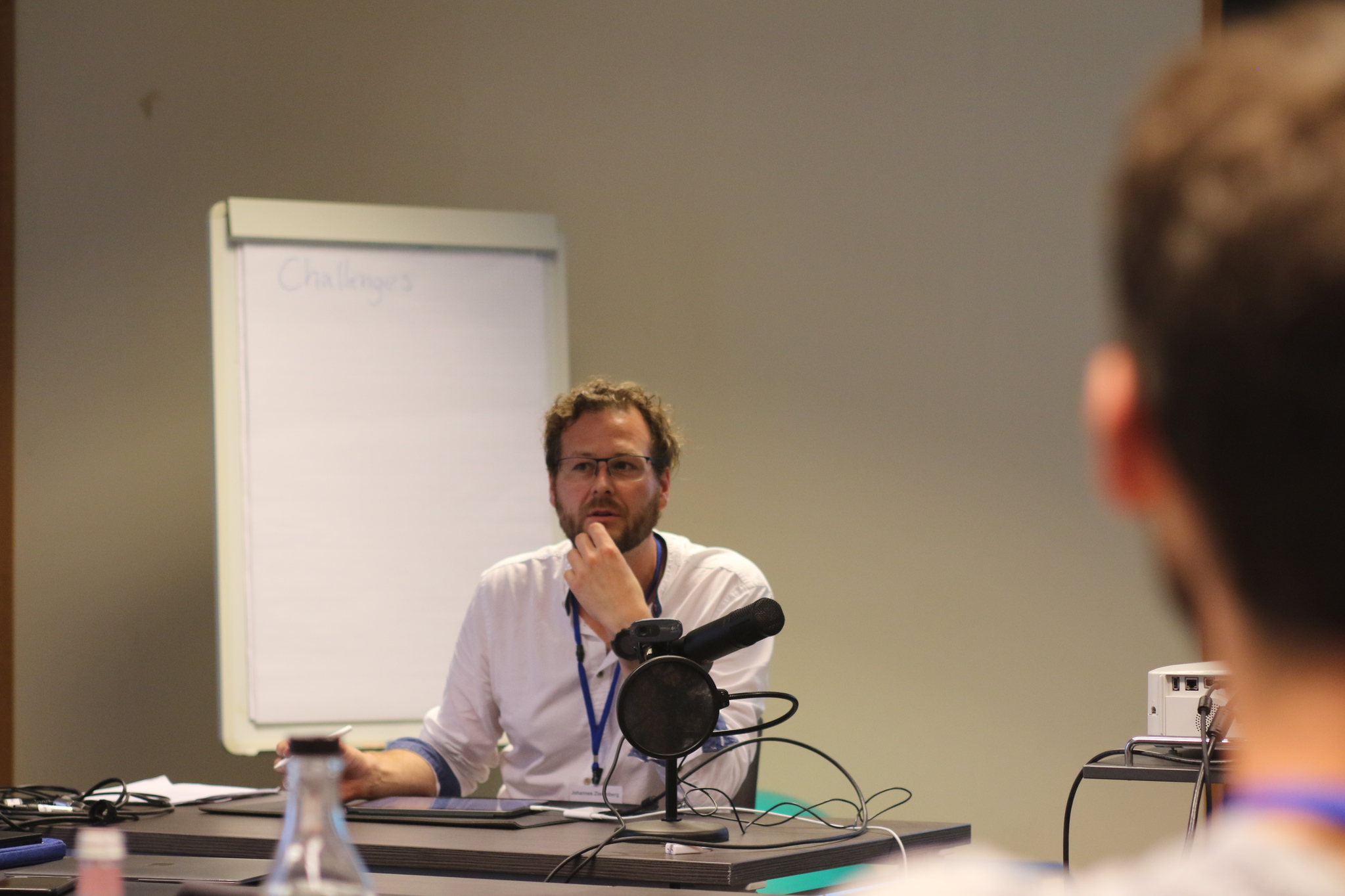
Workshop impressions (2) -

Workshop impressions (3) -
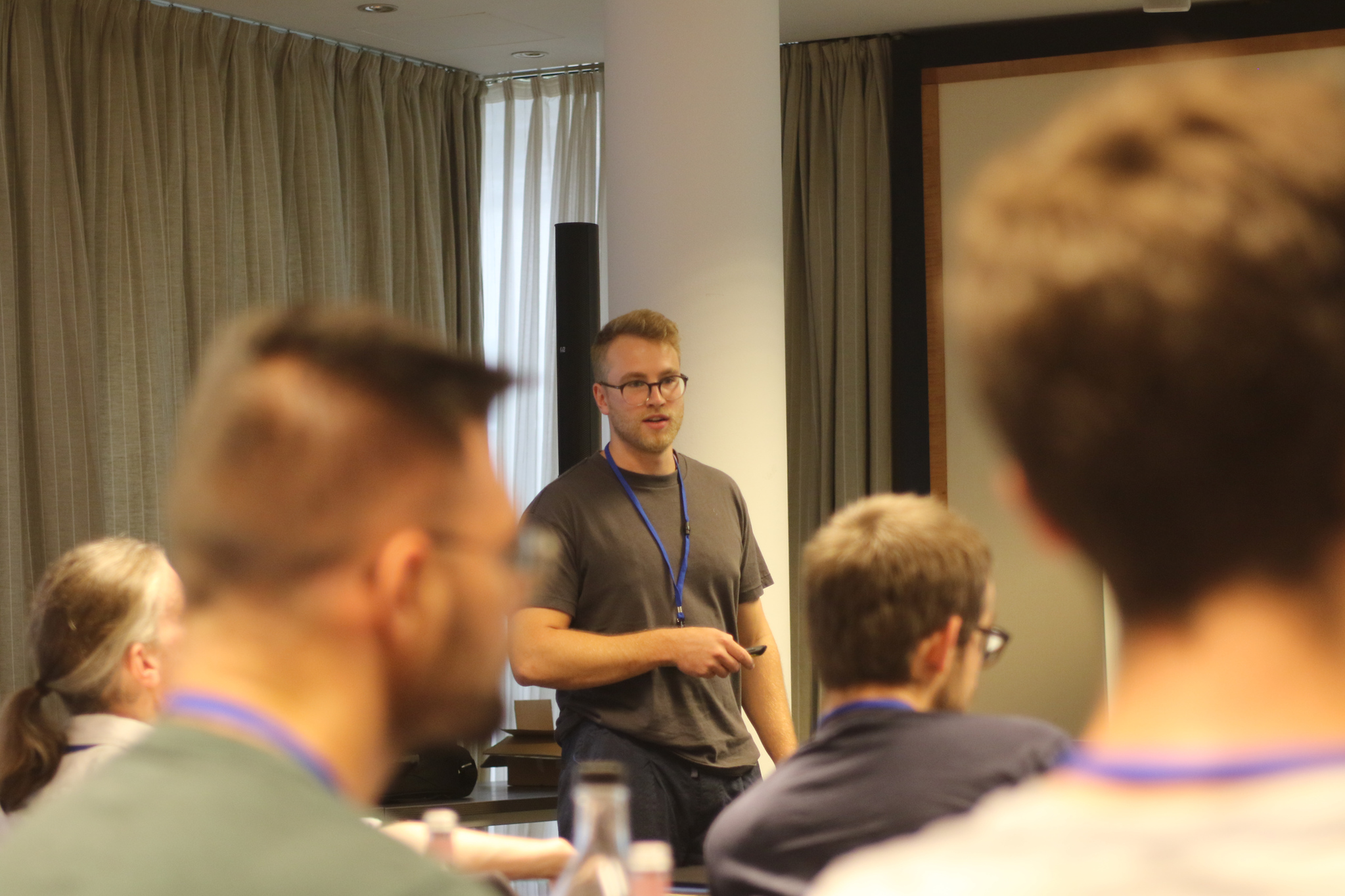
Workshop impressions (4) -

Workshop impressions (5) -

Workshop impressions (6) -

Group photo -

Workshop impressions (7) -

Workshop impressions (8) -

Workshop impressions (9) -

Workshop impressions (10)
From September 18 to 21, 2023, 35 scientists from around the world gathered in Leipzig for a workshop sponsored by the Joachim Herz Foundation under the progam "Begegnungszonen". Organized by Prof. Dr. Martin Weigel from the Chair for Computational and Statistical Physics at the Faculty of Natural Sciences and Dr. Johannes Zierenberg from the Max Planck Institute for Dynamics and Self-Organization in Göttingen, the event brought together esteemed experts from Italy, Switzerland, the USA, Israel, India, France, the Netherlands, Poland, and Finland. Their mission: to advance research at the intersection of statistical physics and artificial intelligence, develop a research agenda addressing pressing issues, and establish new collaborations in this interdisciplinary and dynamic field.
During the workshop, the dual nature of the interaction between statistical physics and artificial intelligence became evident. About half of the presentations utilized methods from statistical physics, such as mapping to classical spin models and approaches of molecular field theory, to attack the black-box nature of prevalent artificial intelligence models. These efforts aimed to contribute to a theory of interpretable machine learning. The other half of the works focused on applying learning models to systems of statistical physics, such as efficiently representing quantum mechanical states, using machine learning methods for simulations, and connecting artificial and natural neural networks.
A crucial observation was the current overemphasis on learning systems based on artificial neural networks. Promising approaches like game theory and information geometry received less attention but potentially offer significant potential. Future research efforts are expected to concentrate on these areas. The relatively new network architecture of "Transformers," underlying large language models like ChatGPT, proved highly expressive in initial applications to model physical systems. Significant progress was also reported concerning the training of neural networks, including hierarchical knowledge refinement and the nature of training as a non-equilibrium process.
The workshop predominantly featured young and mid-career researchers, offering a platform for interactive formats such as brainstorming sessions and small-group project discussions alongside traditional keynote speeches and a poster session detailing the latest developments. These interactions resulted in the initiation of several new collaborations among participants.
Current and planned research efforts in the Chair of Computational and Statistical Physics focus on utilizing neural networks to simulate condensed matter systems. These endeavors promise insights into previously inaccessible systems with complex multistable structures, such as higher biomolecules or glass-forming systems. Additionally, the research explores the behavior of artificial intelligence systems in investigating systems undergoing phase transitions.
Participants regarded the workshop as a highly productive format. A follow-up event is scheduled for 2024 in Milan. The workshop not only expanded the research boundaries between statistical physics and artificial intelligence but also paved the way for future collaboration between these disciplines.



